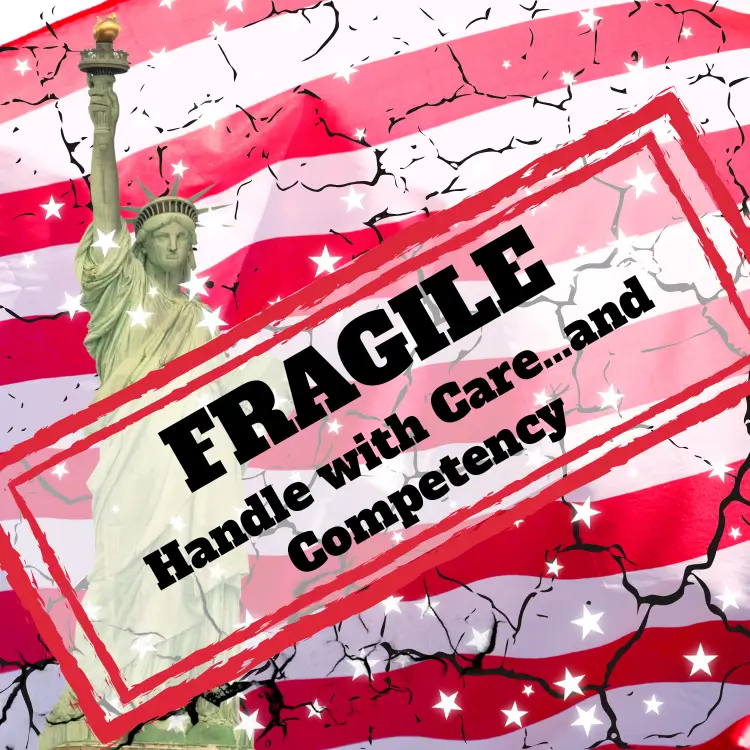At a time when U.S. democracy is increasingly fragile due to political divisions, misinformation, and declining trust in institutions, American colleges and universities must do more than lecture about the importance of civic engagement. They need to model it. This is especially true for graduate programs, which prepare mature and world-ready adults to become the next generation of ethical leaders.

The Antioch University system, comprising five schools, plays a critical role in adult learning and graduate education. Why? Because it offers one of the most mission-driven, hybrid, low-residency models available. The Antioch University system has no interest in churning out mass-produced degrees. Instead, it takes great pride in providing a personalized, hands-on experience that develops ethical and socially-minded leaders in fields such as education, leadership and change, psychology, environmental studies, nursing and health professions, business, and more. Since 1852, Antioch’s mission has remained the same: to “win victories for humanity,” a goal that still guides the institution today, 173 years later.
One of the most powerful ways for adult and graduate programs to ensure that students are participating in (not just talking and reading about) democracy is to embed experiential education and community-based research into the core of its curriculum. Rather than just “teach” democracy, these pedagogies require professors and students alike to “take part” in it, expecting teachers and learners to engage with complex, real-world problems alongside the people and communities most affected by them. Relatedly, these pedagogies prioritize listening, collaboration, and long-term thinking. They equip students to become change agents who understand that leadership in a democratic society means more than occupying a position of authority. It means engaging in difficult dialogues, marked by divergent perspectives; co-creating solutions with folks who agree and disagree with you; and committing yourself to a common good that overcomes self interest.
Antioch University: Democracy as a Living Practice
Antioch University has a long history of putting this educational philosophy into practice. With a mission focused on social, economic, and environmental justice, Antioch doesn’t just teach democracy in a classroom. It’s a way of life that’s woven into its graduate programs in leadership, education, business, nursing, psychology, environmental studies, and more. Antioch’s faculty and students partner with communities to develop solutions and improvements that benefit schools, neighborhoods, businesses, and local agencies.
In its Master of Arts in Leadership and Change, students undertake action research projects that examine systemic inequities in areas like education, public policy, and community development. These projects aren’t just hypothetical exercises. Instead, students work with grassroots organizations, municipal leaders, and advocacy groups to pinpoint challenges, develop interventions, and evaluate outcomes. Through this process, they acquire skills in participatory methods, ethical research design, community facilitation, and systems thinking – essential tools for democratic leadership.
This same ethos also shapes Antioch’s graduate programs in education and environmental studies. Here, faculty help students incorporate local, place-based experiences into their research and professional practice. These projects go beyond just meeting course requirements, providing tangible benefits to communities and fostering civic capacity at the local level.
Building a National Community of Practice
Antioch’s commitment to prioritizing experiential education as a way to strengthen democracy is not meant to be practiced alone. With campuses nationwide, Antioch University is well-positioned to share its ideas and model with others. By bringing together and training faculty from institutions worldwide who want to adopt similar approaches, Antioch can easily expand its impact.
Picture a Summer Institute on Experiential Democracy, hosted annually at one of the five Antioch campuses. Domestic and international Faculty—especially those teaching in graduate programs or professional schools—could gather to explore how to incorporate community-based research, civic learning, and justice-oriented leadership into their syllabi and institutional cultures. Participants could leave with concrete tools: sample curricula, partnership models, assessment strategies, and case studies of successful community collaborations.
Equally important, they would leave with a network of like-minded educators committed to keeping democracy alive through education. Antioch would serve not only as a model but as a multiplier that seeds democratic learning across the country: from urban campuses, to rural campuses, from small liberal arts institutions to large public colleges or universities.
Why This Matters Now
This is a moment when the country urgently needs leaders who go beyond being technocrats or partisans. We need people from various fields – education, psychology, nonprofits, and public service – who can listen to diverse perspectives, collaborate with communities, and find solutions that are inclusive and sustainable. In essence, we need leaders who live democracy, not just in voting or boardrooms, but in everyday settings like classrooms, clinics, city halls, and community centers.
Antioch University is uniquely positioned to lead in this space, thanks to its strong academic foundation, its long history of standing up for what is right, and its national footprint that spans coast to coast. For decades, Antioch has focused on education that benefits everyone, not just a few. Now, with democracy facing uncertain times, this mission is more important than ever.
By focusing on hands-on learning and community-based research in its graduate programs, and by sharing its expertise with others through summer institutes and partnerships with other institutions, Antioch University can provide a practical and inspiring example of democracy in action.
It’s not just a niche. It’s a necessity.


